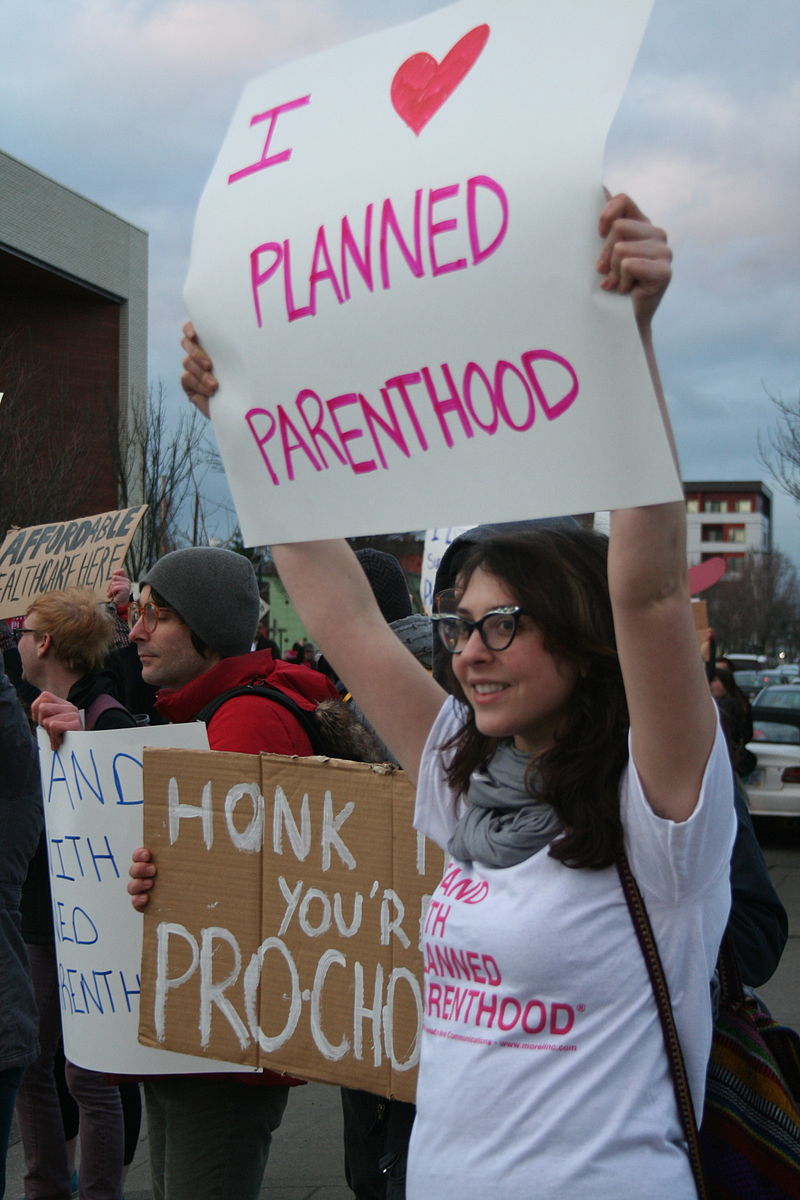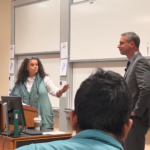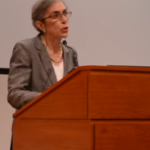Planned Parenthood Only Talks to Womyn’s Studies Professors and Students
Posted October 9, 2015, by Mary Grabar: (Part 1 of the series is here; part 2 here.) Alas, my requests for more information from Planned Parenthood regarding how such activities as the one I observed on September 17, 2015, at Hamilton College, as well as their national “Pink Out” Day on September 29, fit into their own or educational institutions’ missions, were ignored by Beth LeGere, Director of Public Affairs, Planned Parenthood Mohawk Hudson, for a long time. She finally responded to my two email messages, a telephone message, and a cell phone message with a refusal to speak to me. As I reported last week, she demanded a retraction to a statement that was not directly attributed to her. She admitted to encouraging students to vote, but denied encouraging them to vote for pro-choice candidates. One of my questions to her in my email concerned how encouraging students to vote was part of the mission of an organization that is purportedly for “women’s health.” Certainly, a lecture about voting, its history, patterns, and historical origins would be an appropriate topic for a college campus event, especially one that requires student attendance by the professor as the September 17 Hamilton College event did (as I’ve recently learned).
In her original email to Accuracy in Academia, where she read my post, Ms. LeGere implied that I should have identified myself at the event as a journalist. LeGere wrote, “I would have welcomed the opportunity to be interviewed and quoted correctly. I encouraged students to register to vote but I DID NOT encourage anyone to vote for pro-choice candidates. In incorrectly asserting that I made such an inappropriate statement, Ms. Grabar calls into question her own objectivity as a journalist and competency as an accurate reporter.”
She further stated, “Any responsible journalist should print a public retraction based on the above,” and “I am available to speak to Ms. Grabar should she like the opportunity to get the facts.”
Yet, she will not answer my question about the appropriateness of a health organization representative encouraging students to vote. Apparently, the “facts” go out only to those already inclined to believe her version without question. These are the students whose professors require that they attend one-sided presentations of advocacy groups engaged in very controversial practices (like trading in fetal body parts) and funded by taxpayers. Certainly, a debate between this group and a pro-life group would have been an appropriate campus event. But as I described in my previous posts, Planned Parenthood was provided an exclusive forum for disseminating their views under the guise of an academic activity.
Here is the timeline and exchange. I made initial contact on October 1, writing her an email:
Dear Ms. LeGere:
Planned Parenthood Federation of America
Mission Statement: A Reason for Being
Planned Parenthood believes in the fundamental right of each individual, throughout the world, to manage his or her fertility, regardless of the individual’s income, marital status, race, ethnicity, sexual orientation, age, national origin, or residence. We believe that respect and value for diversity in all aspects of our organization are essential to our well-being. We believe that reproductive self-determination must be voluntary and preserve the individual’s right to privacy. We further believe that such self-determination will contribute to an enhancement of the quality of life and strong family relationships.Based on these beliefs, and reflecting the diverse communities within which we operate, the mission of Planned Parenthood isto provide comprehensive reproductive and complementary health care services in settings which preserve and protect the essential privacy and rights of each individualto advocate public policies which guarantee these rights and ensure access to such servicesto provide educational programs which enhance understanding of individual and societal implications of human sexualityto promote research and the advancement of technology in reproductive health care and encourage understanding of their inherent bioethical, behavioral, and social implications






